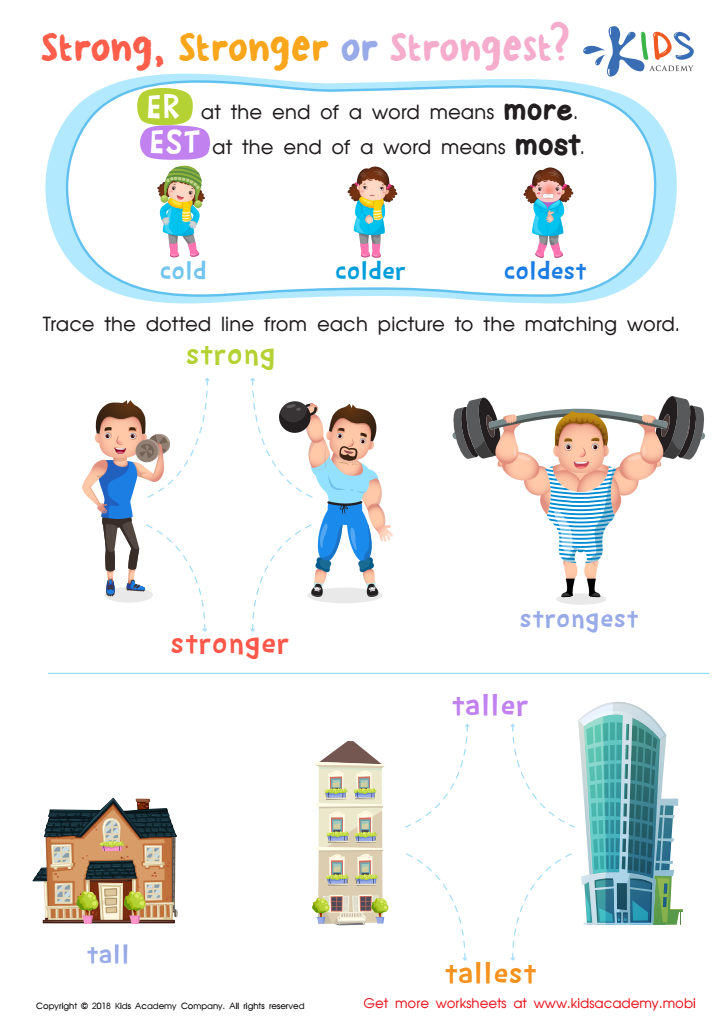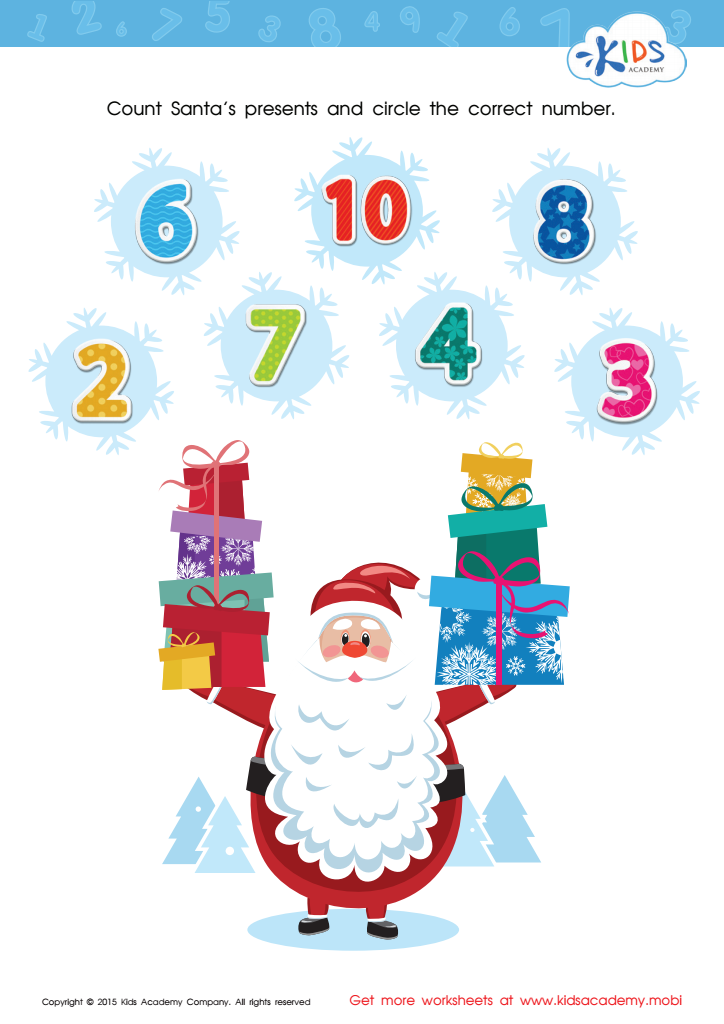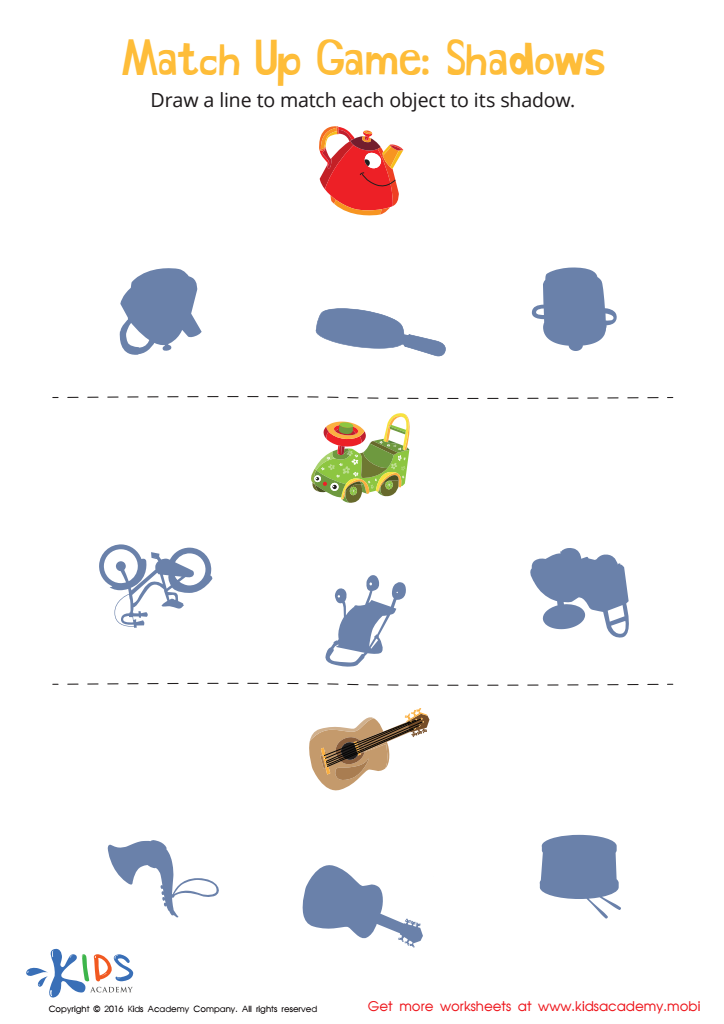Observational skills Extra Challenge Worksheets for Ages 3-6
3 filtered results
-
From - To
Enhance your child's exploratory abilities with our "Observational Skills Extra Challenge Worksheets" for ages 3-6! Designed to cultivate keen observation and focus, these engaging worksheets will not only reinforce critical thinking but also promote creativity and attention to detail. Your little learners will enjoy real-world themes as they identify similarities and differences, solve puzzles, and engage in fun activities that foster their cognitive development. Perfect for preschool and kindergarten, these extra challenges provide a stimulating way for young minds to practice important skills. Unlock the power of observation and watch your child's confidence grow with each completed worksheet!


Strong or Stronger? Worksheet


Count Santa's Presents Worksheet
Observational skills are fundamental in early childhood education because they lay the groundwork for critical thinking, problem-solving, and cognitive development. For children aged 3-6, improving observational skills can significantly enhance their learning experiences. Parents and teachers should care about this because these skills empower children to notice details in their environment, facilitating deeper understanding and meaningful connections with the world.
Children with strong observational abilities are more likely to engage in conversations, ask questions, and explore their surroundings, fostering curiosity and eagerness to learn. Activities that promote observational skills, such as nature walks, sorting games, or simple science experiments, can enrich their playtime and learning. As they observe, they learn to categorize, identify patterns, and develop reasoning skills.
Furthermore, enhancing observational skills supports emotional intelligence. Children learn to read body language, facial expressions, and social cues, which are crucial for developing empathy and strong interpersonal relationships. Ultimately, building these skills encourages lifelong learning and adaptability—essential traits in our rapidly changing world. Involvement from parents and teachers in guiding and nurturing these abilities is crucial, as they help shape confident, observant, and engaged learners who are well-equipped for future challenges.


 Assign to My Students
Assign to My Students
















